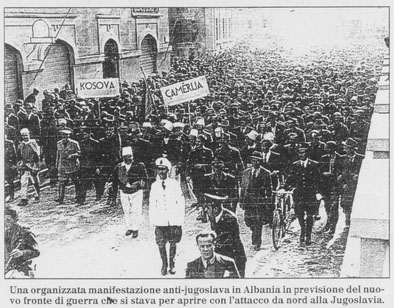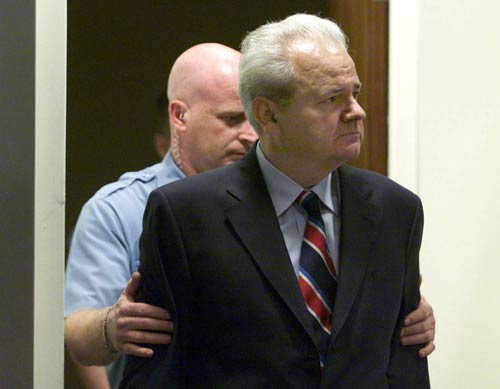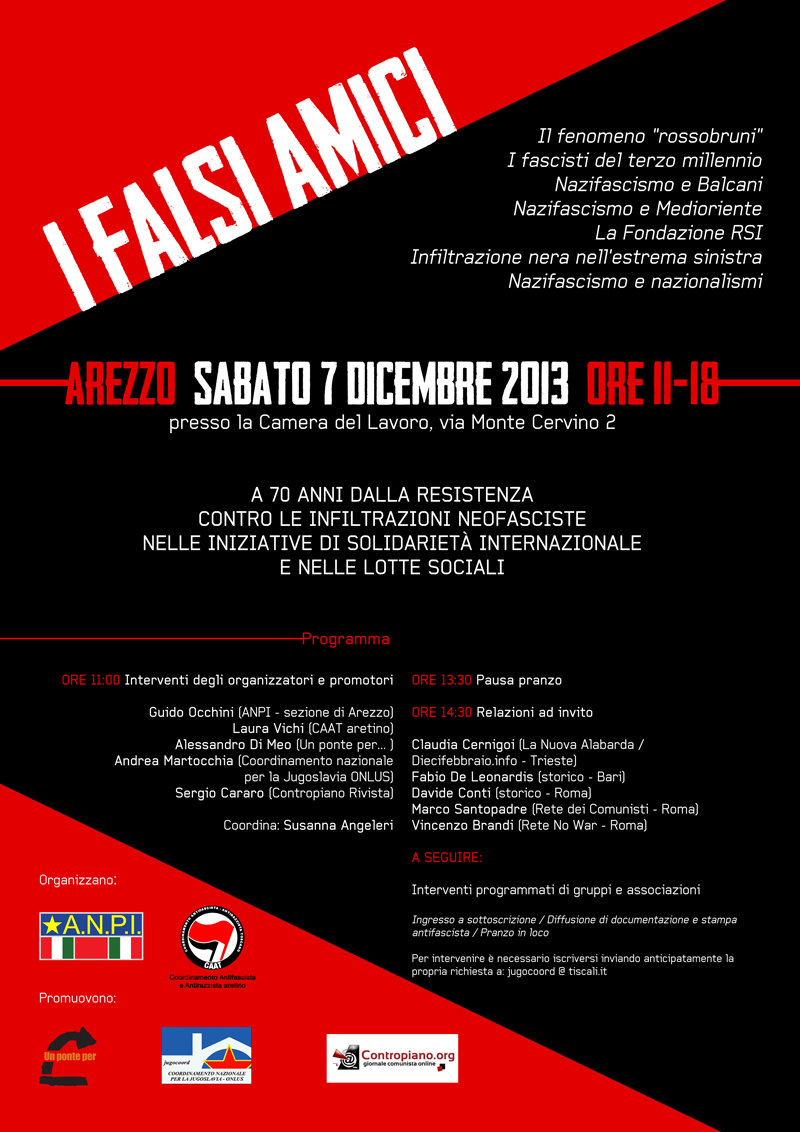[srpskohrvatski / english] Among other celebrations, an international Conference was held in Belgrade on 19 April 2019 to mark the 100th Anniversary of the Foundation of the Socialist Workers' Party of Yugoslavia (unified party of the communists). For a more general Introduction to the Conference see the dedicated JUGOINFO post
Si è tenuta a Belgrado lo scorso 19 aprile una importante conferenza internazionale nel centesimo anniversario dalla fondazione del Partito Socialista dei Lavoratori di Jugoslavia – precursore del Partito Comunista jugoslavo.
Alla conferenza, organizzata dal Coordinamento dei Partiti Comunisti e dei Lavoratori dello spazio jugoslavo, hanno partecipato le delegazioni delle forze che fanno parte del Coordinamento stesso – SRP (Croazia), KS (Serbia), KPM (Macedonia), JKPCG (Montenegro) e SKBiH (Bosnia-Erzegovina) – oltre a rappresentanti di partiti, organizzazioni e associazioni da Bulgaria, Germania, Grecia, Italia, Romania, Russia.
Di seguito il contributo del compagno Radošević del Partito Comunista Jugoslavo del Montenegro (JKPCG – si veda anche il contributo del compagno Vuković):
In English:
Belgrade, April 19, 2019
Although Montenegro was in a very difficult situation due to the consequences of the past wars: the Balkan Wars and the First World War, which resulted in great human and material losses, as well as caused by the Christmas rebellion of a small part of population, dissatisfied with the way of unification, the Montenegrin delegation readily presented its environment at the Congress of Unification. This is emphasized just before, because of the absence of a socialist party in Montenegro, although there were several smaller workers' organization in Bar (240 members) much less in Cetinje, Podgorica, Niksić and some other places, with the emphasis that at the beginning of the twentieth century in Montenegro without Boka, which was not part of it, there were only about 400 permanent employees with 1,500 seasonal workers. The fact that there were no more workers or organized socialist party does not mean that the Montenegrin delegation was not familiar and theoretically prepared for such a magnificent gathering. The delegation consisted of Mihailo Vojinović from Cetinje, Vuk Pulević from Podgorica, Marko Mašanović from Rijeka Crnojević, Miljko Bulajić from Grahova, Miloš Jovanović from Danilovgrad and Adolf Muk from Kotor. They were prominent and educated people of their environment, political active and socialist oriented. In addition, they originated from an environment in which socialist ideas had a significant impact since the Paris Commune, propagated by Vasa Pelagić while he was on Cetinje and some Montenegrin intellectuals who were educated abroad. This was also supplemented by the newspaper "Montenegrin", which appeared under the editorial staff of Simo Popović on Cetinje and published, among other things, reports on the Paris Commune and some articles of the revolutionary content of Karl Marx, Svetozar Marković and others, in order to open Jovan Popović's bookshop on Cetinje, and then the reading rooms, for those who were interested in various books of revolutionary content. It is also important to point out that the "Voice of Montenegrins" in 1891 popularized the First May celebrations in Europe, and that the then Minister of Education, Jovan Pavlović, prescribed eight-hour working hours for the employees of the State Printing Office on Cetinje. In addition, it is necessary to emphasize that the Cetinje Library received 54 Yugoslav and foreign newspapers and magazines in the nineties of the nineteenth century, through which the socialist-oriented activists were acquainted with the revolutionary aspirations and their protagonists. And not only did activists follow European developments, but they also tried to get to know their environment with advanced ideas. Dr Đorđe Filipović, Dušan Brkanović, Marko Mašanović were doing so with great diligence, while Krsto Popović, a student from Nikšić, actively acted in Belgrade. He later, among other things, edited the newly-established newspaper "Forward", which was published as an independent newspapers of free Montenegrins in Belgrade, and aimed at destroying the absolutist regime in Montenegro; the establishment of the national government, the equality of Montenegro as a member of the Balkan Federation, as well as independent internal organization. Socialist ideas were propagated by others, especially emigrants from America and other countries, and transmitted their achievements. Such propaganda was opposed by Duke (King) Nikola, especially in the last years of his reign, and persecuted all those who opposed his absolutist rule. Even the new government, after liberation, forbade any gatherings and organizations, and closed already opened meeting rooms. The undertaken restrictions did not prevent the Montenegrin delegation from going in a clear and consistent position to the Unification Congress, which was held from April 20 to 23, 1919 in Belgrade, with the presence of 432 delegates. By actively participating in the Congress, the Montenegrin delegation advocated the establishment of as much unity as possible between the then diverse groups and harmonized the substantive issues, starting with the name Socialist Workers' Party of Yugoslavia (Communists), as a single party, and not an association of parties, what were the proposals. Through further activities, the proposal is supported the newly founded party to join the Third Communist International, and then take power by revolution and approach the social distribution of the means of production. As the Congress was not expected to resolve all the major issues, a magnificent step was made-a unique revolutionary workers' party was formed in the territory of the state union with the perspective of further improvement. Although the program and the statute have not been adopted, but only the so-called Annex of unification, which has traced the guidelines for further work until the next congress.
Returning from the Congress, the Montenegrin delegation was encouraged by the recognition of the work so far, and especially with the decisions of the Congress, has continued hard work with numerous activists like Jovan Tomašević, Stanko Dragojević, Pavle Žižić, Miloš Jovanović and other, which was felt by organized First May events and the creation of new workers' organizations in Podgorica, Niksić, Cetinje, Peć, Rijeka Crnojević and other places that we can only speak with gratitude with the further activities that won the highest number of votes in the election district of Montenegro in the 1920 parliamentary elections, and that we are not talking about further successes.
Thank you!
Radošević
CONFERENCE ON THE 100TH ANNIVERSARY OF THE FOUNDATION OF THE COMMUNIST PARTY OF YUGOSLAVIA
CONTRIBUTION BY THE YUGOSLAV COMMUNIST PARTY OF MONTENEGRO (J.K.P.C.G.)
PARTICIPATION OF THE MONTENEGRIAN DELEGATION AT THE FOUNDING CONGRESS OF SOCIALIST LABOR PARTY OF YUGOSLAVIA (OF COMMUNISTS)
Although Montenegro was in a very difficult situation due to the consequences of the past wars: the Balkan Wars and the First World War, which resulted in great human and material losses, as well as caused by the Christmas rebellion of a small part of population, dissatisfied with the way of unification, the Montenegrin delegation readily presented its environment at the Congress of Unification. This is emphasized just before, because of the absence of a socialist party in Montenegro, although there were several smaller workers' organization in Bar (240 members) much less in Cetinje, Podgorica, Niksić and some other places, with the emphasis that at the beginning of the twentieth century in Montenegro without Boka, which was not part of it, there were only about 400 permanent employees with 1,500 seasonal workers. The fact that there were no more workers or organized socialist party does not mean that the Montenegrin delegation was not familiar and theoretically prepared for such a magnificent gathering. The delegation consisted of Mihailo Vojinović from Cetinje, Vuk Pulević from Podgorica, Marko Mašanović from Rijeka Crnojević, Miljko Bulajić from Grahova, Miloš Jovanović from Danilovgrad and Adolf Muk from Kotor. They were prominent and educated people of their environment, political active and socialist oriented. In addition, they originated from an environment in which socialist ideas had a significant impact since the Paris Commune, propagated by Vasa Pelagić while he was on Cetinje and some Montenegrin intellectuals who were educated abroad. This was also supplemented by the newspaper "Montenegrin", which appeared under the editorial staff of Simo Popović on Cetinje and published, among other things, reports on the Paris Commune and some articles of the revolutionary content of Karl Marx, Svetozar Marković and others, in order to open Jovan Popović's bookshop on Cetinje, and then the reading rooms, for those who were interested in various books of revolutionary content. It is also important to point out that the "Voice of Montenegrins" in 1891 popularized the First May celebrations in Europe, and that the then Minister of Education, Jovan Pavlović, prescribed eight-hour working hours for the employees of the State Printing Office on Cetinje. In addition, it is necessary to emphasize that the Cetinje Library received 54 Yugoslav and foreign newspapers and magazines in the nineties of the nineteenth century, through which the socialist-oriented activists were acquainted with the revolutionary aspirations and their protagonists. And not only did activists follow European developments, but they also tried to get to know their environment with advanced ideas. Dr Đorđe Filipović, Dušan Brkanović, Marko Mašanović were doing so with great diligence, while Krsto Popović, a student from Nikšić, actively acted in Belgrade. He later, among other things, edited the newly-established newspaper "Forward", which was published as an independent newspapers of free Montenegrins in Belgrade, and aimed at destroying the absolutist regime in Montenegro; the establishment of the national government, the equality of Montenegro as a member of the Balkan Federation, as well as independent internal organization. Socialist ideas were propagated by others, especially emigrants from America and other countries, and transmitted their achievements. Such propaganda was opposed by Duke (King) Nikola, especially in the last years of his reign, and persecuted all those who opposed his absolutist rule. Even the new government, after liberation, forbade any gatherings and organizations, and closed already opened meeting rooms. The undertaken restrictions did not prevent the Montenegrin delegation from going in a clear and consistent position to the Unification Congress, which was held from April 20 to 23, 1919 in Belgrade, with the presence of 432 delegates. By actively participating in the Congress, the Montenegrin delegation advocated the establishment of as much unity as possible between the then diverse groups and harmonized the substantive issues, starting with the name Socialist Workers' Party of Yugoslavia (Communists), as a single party, and not an association of parties, what were the proposals. Through further activities, the proposal is supported the newly founded party to join the Third Communist International, and then take power by revolution and approach the social distribution of the means of production. As the Congress was not expected to resolve all the major issues, a magnificent step was made-a unique revolutionary workers' party was formed in the territory of the state union with the perspective of further improvement. Although the program and the statute have not been adopted, but only the so-called Annex of unification, which has traced the guidelines for further work until the next congress.
Returning from the Congress, the Montenegrin delegation was encouraged by the recognition of the work so far, and especially with the decisions of the Congress, has continued hard work with numerous activists like Jovan Tomašević, Stanko Dragojević, Pavle Žižić, Miloš Jovanović and other, which was felt by organized First May events and the creation of new workers' organizations in Podgorica, Niksić, Cetinje, Peć, Rijeka Crnojević and other places that we can only speak with gratitude with the further activities that won the highest number of votes in the election district of Montenegro in the 1920 parliamentary elections, and that we are not talking about further successes.
Thank you!
Radošević
Na srpskohrvatskom:
Beograd, 19. Aprila 2019.god.
KONFERENCIJA POVODOM 100. GODIŠNJICE OSNIVANJA KOMUNISTIČKE PARTIJE JUGOSLAVIJE
IZLAGANJE JUGOSLAVENSKE KOMUNISTIČKE PARTIJE CRNE GORE (J.K.P.C.G.)
UČEŠĆE CRNOGORSKE DELEGACIJE NA OSNIVAČKOM KONGRESU SOCIJALISTIČKE PARTIJE JUGOSLAVJE
Iako se Crna Gora nalazila u vrlo teškoj situaciji zbog posledica minulih ratova-balkanskih i Prvog svjetskog, iz kojih je izašla sa velikim ljudskim i materijalnim gubicima, kao i izazvanom Božićnom pobunom manjeg broja stanovništva, nezadovoljnog načinom ujedinjenja, ipak je crnogorska delegacija spremno prezentovala svoju sredinu na Kongresu ujedinjenja. Ovo se ističe utoliko prije, što u Crnoj Gori nije bila organizovana socijalistička partija, iako su postojale nekolike, istina manje, radničke organizacije u Baru (240 članova) znatno manje na Cetinju, Podgorici, Nikšiću i nekim drugim mjestima sa naglaskom da je početkom dvadesetog vijeka u Crnoj Gori bez Boke, koja nije bila u njenom sastavu, bilo svega oko 400 stalnih uz 1.500 sezonskih radnika. To što nije bilo više radnika ni organizovane socijalističke partije, ne znači da crnogorska delegacija nije bila upoznata i teorijski pripremljena za jedan takav veličanstveni skup. Delegaciju su činili Mihailo Vojinović iz Cetinja, Vuk Pulević iz Podgorice, Marko Mašanović iz Rijeke Crnojevića, Miljko Bulajić iz Grahova, Miloš Jovanović iz Danilovgrada i Adolf Muk iz Kotora. To su bili istaknuti i obrazovani ljudi svoje sredine, a uz to aktivni i socijalistički usmjereni. Uz to,poticali su iz sredine u kojoj su socijalističke ideje imale znatan uticaj još od Pariske komune, koje je propagirao Vasa Pelagić dok se nalazio na Cetinju i pojedini crnogorski intelektualci, koji su se školovali u inostranstvu. Tome je doprinuo i list „Crnogorac“, koji je pod uredništvom Sima Popovića izlazio na Cetinju i objavljivao, između ostalog, i izvještaje o Parijskoj komuni i pojedine članke revolucionarne sadržine Karla Marksa, Svetozara Markovića i drugih, da bi se otvaranjem knjižare Jovana Popovića na Cetinju, a zatim i čitaonice, zainteresovanim bile dostupne razne knjige revolucionarne sadržine. Značajno je istaknuti i da je „Glas Crnogorca“ 1891. godine popularisao prvomajske proslave u Evropi, te da je tadašnji ministar prosvjete Jovan Pavlović propisao osmočasovno radno vrijeme za radnike Državne štamparije na Cetinju. Uz to, neophodno je naglasiti da je Cetinjska biblioteka devedesetih godina 19.vijeka primila 54 jugoslovenska i strana lista i časopisa, preko kojih su socijalistički orijentisani aktivisti bili upoznati sa revolucionarnim stremljenjima i njihovim protagonistima. I ne samo da su aktivisti pratili evropska zbivanja, već su nastojali da sa naprednim idejama upoznaju i svoju sredinu. Na tome su svesrdno radili dr Đorđe Filipović, Dušan Brkanović, Marko Mašanović, dok je u Beogradu aktivno djelovao Krsto Popović, student iz Nikšića. On je kasnije, pored ostalog, uređivao novoosnovani list „Naprijed“ koji je izlazio kao nezavisni list slobodnih Crnogoraca u Beogradu, a imao je za cilj-rušenje apsolutističkog režima u Crnoj Gori; uspostavljanje narodne vladavine, ravnopravnost Crne Gore kao člana Balkanske federacije, te samostalno unutrašnje uređenje i slično. Socijalističke ideje propagirali su i drugi, naročito pečalbari iz Amerike i drugih zemalja i prenosili njihova dostignuća. Takvoj propagandi protivio se knjaz (kralj) Nikola, naročito poslednjih godina svoje vladavine, pa je progonio sve one koje su se suprostavljali njegovoj apsolutističkoj vladavini. Pa i nova vlast, poslije oslobođenja, zabranjivala je bilo kakva okupljanja i organizovanja, a otvorene domove zatvarala. Preduzeta ograničenja nijesu spriječila crnogorsku delegaciju da se jasnim i usaglašenim stavom pođe na Kongres ujedinjenja, koji je održan od 20 do 23. aprila 1919 godine u Beogradu uz prisustvo 432 delegata. Aktivnim učešćem na Kongresu, Crnogorska delegacija se zalagala da se uspostavi što veće jedinstvo između do tada raznoraznih grupacija i usaglase suštinska pitanja počev od naziva Socijalistička radnička partija Jugoslavije (komunista), kao jedinstvene partije, a ne saveza partija, kakvih je bilo predloga. Kroz dalje aktivnosti podržan je predlog da novoosnovana partija pristupi Trećoj komunističkoj internacionali, a zatim da revolucionarnim putem preuzme vlast i pristupi društvenoj raspodjeli sredstava za proizvodnju. Kako se od Kongresa nije očekivalo da razrješi sva bitnja pitanja, ipak je učinjen veličanstven korak-stvorena je jedinstvena revolucionarna radnička partija na teritoriji državne zajednice sa perspektivom daljeg usavršavanja. Iako nije donesen program i statut, već samo tkz. Podloga za ujedinjenje, kojom su trasirane smjernice za dalji rad do sljedećeg kongresa. Vraćajući se s Kongresa, Crnogorska delegacija ohrabrena priznanjem dotadašnjeg rada, a pogotovo odlukama Kongresa, nastavila je uz brojne aktiviste poput Jovana Tomaševića, Stanka Dragojevića, Pavla Žižića, Miloša Jovanovića i drugih uporan rad, što se osjetilo organizovanim prvomajskim manifestacijama i stvaranjem novih radničkih organizacija u Podgorici, Nikšiću, Cetinju, Peći, Rijeci Crnojevića i drugim mjestima o čijoj daljoj aktivnosti možemo samo sa zahvalnošću govoriti s obzirom da je na parlamentarnim izborima 1920. godine osvojila najviše glasova u izbornom okrugu Crna Gora,a da o daljim uspjesima ne govorimo.
Hvala!
Radošević
Hvala!
Radošević











